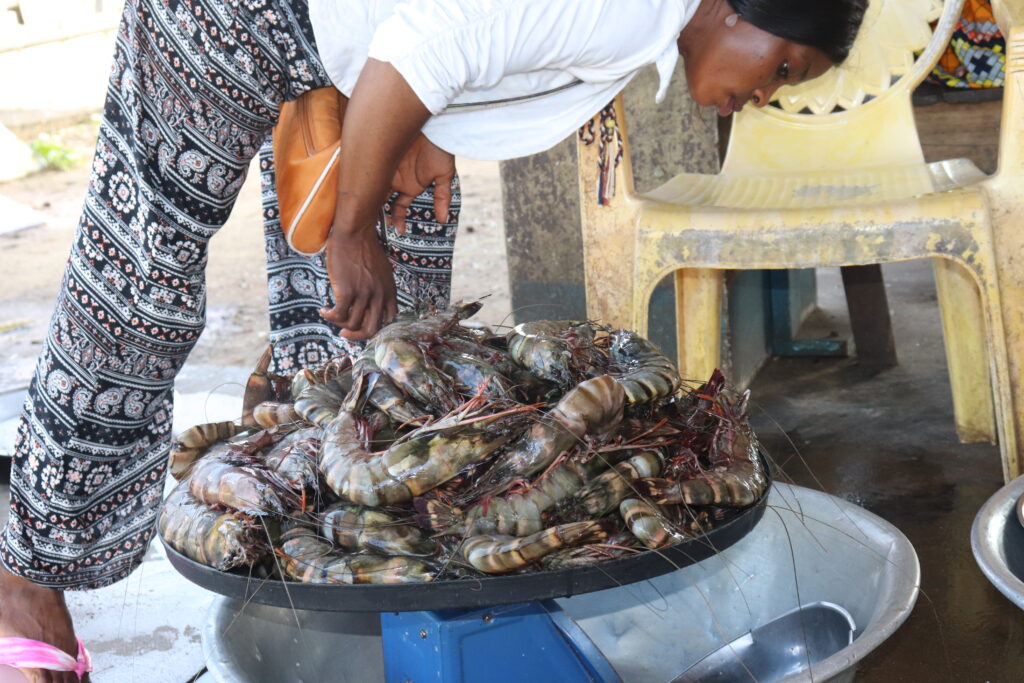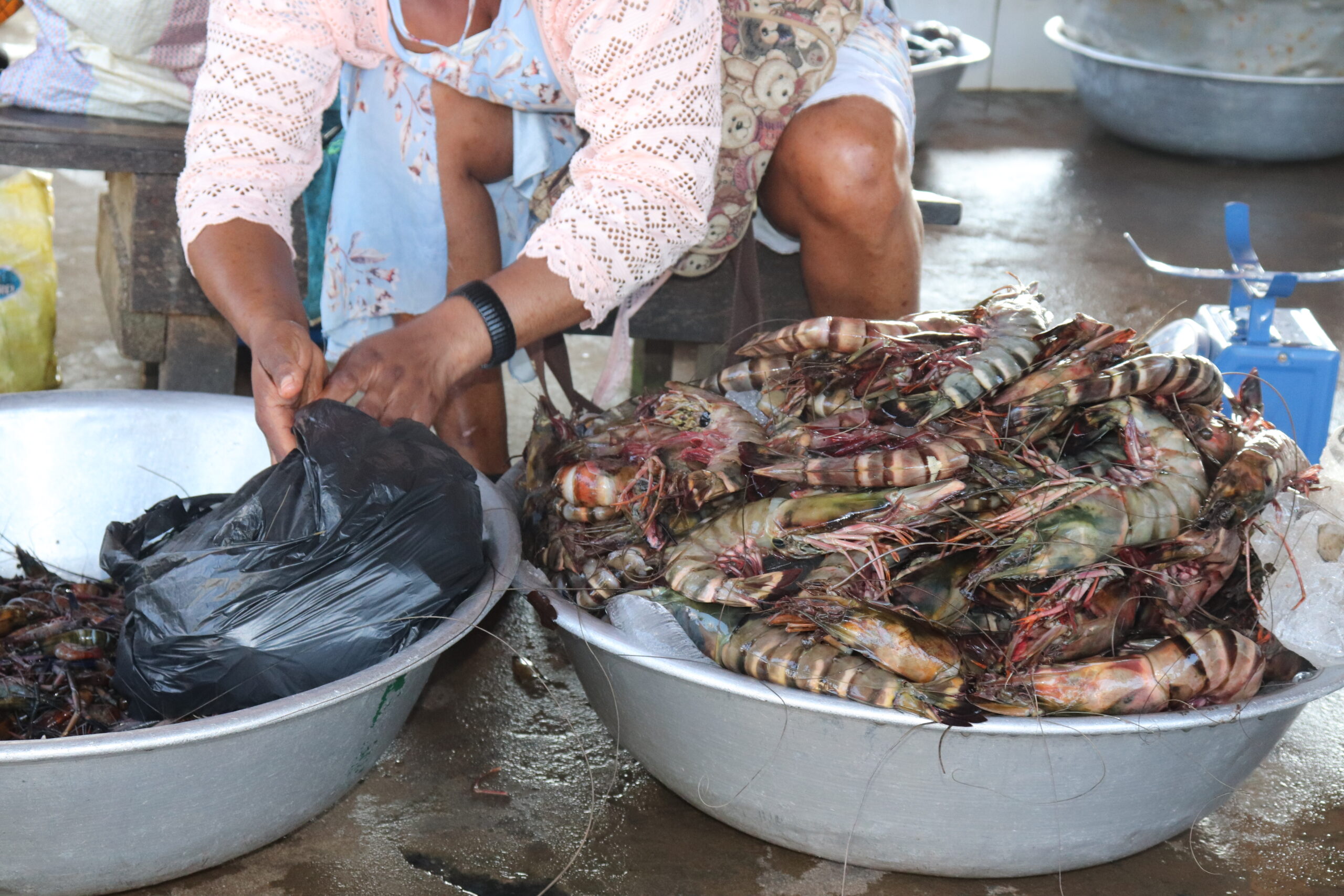Leocadia Bongben
The Mayi Village in Kribi will host the inaugural Cameroonian Shrimp Promotional Day on November 21, World Fisheries Day.
The day would be celebrated under the Theme: Fishing industry players and stakeholders face the challenges of sustainable fisheries management, the development of value chains, and the transformation of food systems.
On the occasion, visitors will be guided to exhibitions to learn about the different stages of the Cameroon shrimp value chain and to buy products. The value chain’s participants’ goods and expertise will be shown, displayed, and marketed at commercial stands.

A catering area will be accessible to the general public, allowing them to purchase and sample varieties of locally caught shrimp dishes under the supervision of an authorized and approved Cameroonian restaurant.
Kids aged 5 to 15 will be treated to musical and artistic entertainment, introduced to shrimp fishing, and a quiz. The JPCC 2024 will officially commence with an artistic and musical performance from Cameroon.
Also, the University of Douala will introduce young people between the ages of 15 and 20 to shrimp fishing. In partnership with PLAPRECAM, the university will provide practical shrimp handling activities, such as sexing and identification. The youths will be able to participate in games, especially tests about shrimp fishing, and will receive devices as prizes.
Shrimp production in Cameroon
Situated on the Atlantic coast, where Western and Central Africa converge, Cameroon boasts a 400-kilometer coastline. It was named “Rio dos Camarões,” or “River of Prawns,” by Portuguese explorers as early as 1472 because of the abundance of crustaceans they discovered there.
Shrimp is currently the main seafood export from Cameroon. Both industrial and artisanal fishers, processors, distributors, and retailers profit from the shrimp value chain. An estimated 4,200 tonnes are produced annually from industrial fishing, and over 6,000 tonnes are produced from artisanal fishing.
In 2021, 590 tons of shrimp were shipped to neighboring countries, and 290 tons were exported to Asia. Shrimp export to the European Union (EU) has been prohibited since 2006. Young people make up the majority of the 11,700 employees in the shrimp value chain. Men make up the bulk of Cameroonian fishermen, whereas women contribute to processing and retailing.
Contribution of FIS4ACP in shrimp management
FISH4ACP strives to enhance fishing activity monitoring and stock management to facilitate better management of Cameroon’s shrimp fishery and reduce its environmental impact.

Together, value chain participants develop the skills necessary to ensure sustainable initiatives. To boost the productivity and competitiveness of the shrimp industry and provide access to high-value markets that will support the local economy and create jobs, especially for women and young people, FISH4ACP works to improve the business and sanitary environment.
FISH4ACP seeks to boost the competitiveness and productivity of the shrimp industry in Cameroon by encouraging a sustainable and ethically run shrimp fishery that contributes to economic expansion and benefits society for all parties along the value chain.
To boost the sustainability and productivity of the shrimp sector, FISH4ACP evaluates the value chain and refines the strategy. The initiative strives for a more environmentally sustainable shrimp value chain with greater stock control and oversight that will improve sanitary conditions and promote entry into profitable markets. FISH4ACP encourages the value chain for marine shrimp to be more transparent and actively governed.

